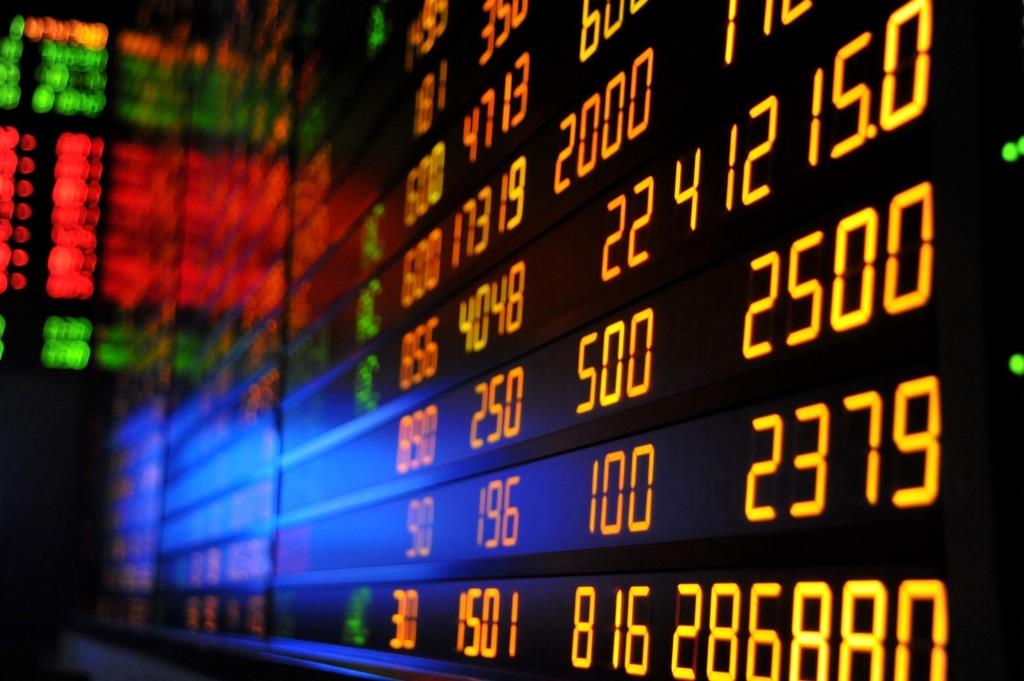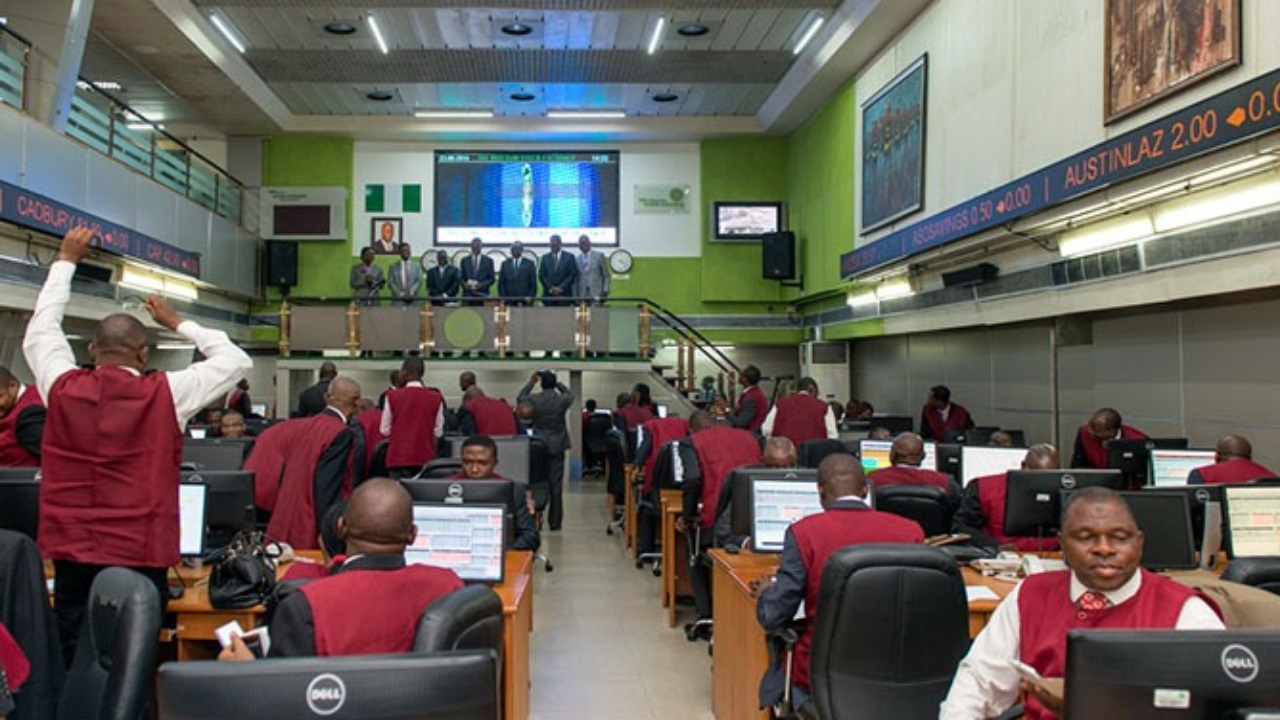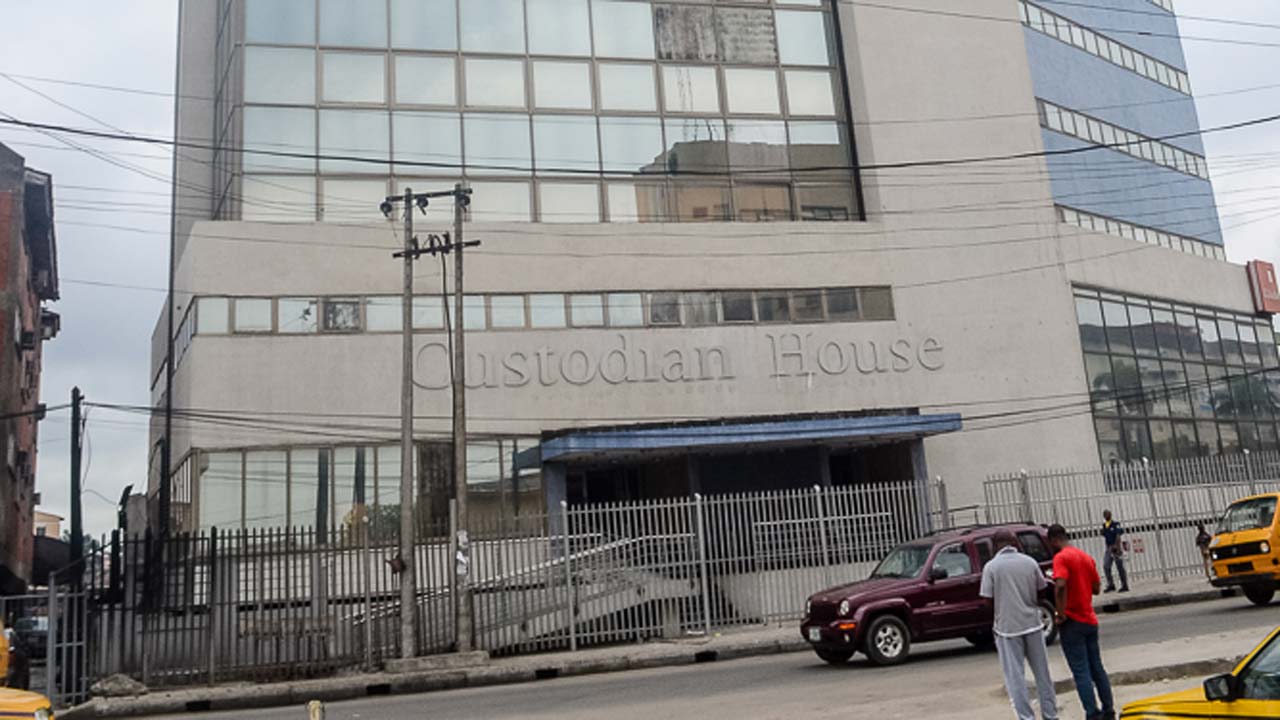Economy
Yellen Testimony in Focus on Wall Street

By Investors Hub
The major U.S. index futures are pointing to a mixed opening on Wednesday, as the Dow futures are up by 69 points but the Nasdaq futures are down by 4.75 points.
Traders may be reluctant to make significant moves ahead of remarks by outgoing Federal Reserve Chair Janet Yellen.
Yellen is scheduled to testify on the economic outlook before the Congressional Joint Economic Committee beginning at about 10 am ET.
In prepared remarks released ahead of her appearance, Yellen said economic growth appears to have stepped up from its subdued pace early in the year.
Yellen noted inflation has continued to run below the Fed’s 2 percent target but said recent lower readings on inflation likely reflect transitory factors.
The Fed Chair also reiterated that she expects gradual increases in interest rates will be appropriate to sustain a healthy labor market and stabilize inflation around the central bank’s objective.
Stocks saw some volatility in afternoon trading on Tuesday but managed to end the session firmly in positive territory. With the strong upward move on the day, the major averages climbed to new record closing highs.
The major averages ended the session just off their best levels of the day. The Dow surged up 255.93 points or 1.1 percent to 23,836.71, the Nasdaq climbed 33.84 points or 0.5 percent to 6,912.36 and the S&P 500 jumped 25.62 points or 1 percent to 2,627.04.
The notably higher close on Wall Street was partly due to news the Republican tax reform bill took another key step forward, as the legislation was approved by the Senate Budget Committee.
Members of the Senate Budget Committee voted 12 to 11 to advance the bill, with the vote coming down strictly along party lines.
The vote to send the bill to the Senate floor came after Republican Senators Bob Corker, R-Tenn., and Ron Johnson, R-Wis., dropped their objections to the bill.
The full Senate could vote on the bill as early as Thursday, although the legislation still includes significant differences from the House version.
Traders also reacted positively to remarks by Federal Reserve Chair nominee Jerome Powell, who testified before the Senate Banking Committee.
Powell told the committee he favors “tailoring” banking regulations so the largest and most complex institutions face the most stringent regulations while the burden on smaller banks is reduced.
The Fed Chair nominee also said the case for a December interest rate hike is “coming together” and said the central bank will continue reducing its $4.5 trillion balance sheet in a process that will take three or four years.
Powell repeatedly refused to comment on the potential economic impact of the Republican tax reform legislation working its way through Congress.
On the economic front, the Conference Board released a report showing an unexpected improvement in consumer confidence in the month of November.
The Conference Board said its consumer confidence index climbed to 129.5 in November from an upwardly revised 126.2 in October. Economists had expected the index to drop to 124.5.
With the unexpected increase, the consumer confidence index rose to its highest level since reaching 132.6 in November of 2000.
In mid-afternoon trading, some selling pressure was generated by reports that North Korea fired a ballistic missile, although traders quickly shrugged off the news.
Banking stocks showed a substantial move to the upside over the course of the session, driving the Dow Jones Banks Index up by 3.3 percent. With the jump, the index reached its best closing level in three weeks.
The rally by banking stocks partly reflected a positive reaction to Powell’s comments regarding financial regulations, which he called “tough enough.”
Significant strength also emerged among airline stocks, as reflected by the 2 percent gain posted by the NYSE Arca Airline Index. The index reached its best closing level in over a month.
Trucking, railroad, brokerage, and housing stocks also saw considerable strength on the day, moving higher along with most of the other major sectors.
Economy
Dangote Cement Assures African Consumers Sufficient Supply With 90MT Yearly

By Aduragbemi Omiyale
Leading cement maker, Dangote Cement Plc, has reaffirmed its commitment to making Africa fully self‑sufficient in cement production by raising its output to 90 million metric tonnes per annum by 2030 from the current 52 million metric tonnes per annum.
The chief executive of the firm, Mr Arvind Pathak, during a strategic briefing on the company’s expansion drive, disclosed that efforts are being made to accelerate investments across African markets to close supply gaps and support the continent’s infrastructural ambitions.
According to him, the organisation is strengthening the continent’s industrial backbone and reducing reliance on imported construction materials, stressing that, “Our vision is clear — to ensure Africa produces enough cement to meet its own needs…Through continuous expansion, operational excellence, and a strong distribution network, we are positioning Dangote Cement to power growth across the continent. We are not just building a business; we are building Africa’s future.”
“Through our collective determination, we have eliminated Nigeria’s dependence on imported cement and transformed the country into a net exporter of cement to several neighbouring nations,” Mr Pathak added.
Dangote Cement currently operates in multiple African countries, with integrated plants, grinding facilities, and distribution hubs strategically located to serve diverse markets.
The company’s ongoing projects include plant upgrades, capacity expansions, and the introduction of advanced energy‑efficient technologies designed to reduce operational costs and carbon footprint.
Reinforcing the company’s long-term vision, its founder, Mr Aliko Dangote, described self-sufficiency as both an economic imperative and a continental responsibility.
“Africa has no reason to depend on cement imports. We have the raw materials, the talent, and the determination. Our goal at Dangote Cement is to unlock Africa’s potential by ensuring that every nation on this continent can access affordable, high‑quality cement produced within Africa. This is how we build prosperity, job opportunities, and sustainable development,” the businessman stated.
Mr Dangote added that the company’s investments reflect its passion for unlocking continental competitiveness and fostering industrialisation across Africa.
With major infrastructural projects rising across African cities — from highways and bridges to housing developments — the demand for cement continues to grow. Dangote Cement’s renewed push toward continental self‑sufficiency is expected to address supply challenges, stabilise prices, and enhance construction reliability in the years ahead.
Economy
NASD OTC Bourse Appreciates Further by 0.46%

By Adedapo Adesanya
The NASD Over-the-Counter (OTC) Securities Exchange appreciated by 0.46 per cent on Friday, February 6, with the market capitalisation expanding by N10.2 billion to N2.207 trillion from the N2.197 trillion quoted in the previous session, while the NASD Unlisted Security Index (NSI) grew by 17.06 points to 3,689.72 points from the previous session’s 3,672.66 points.
The expansion was buoyed by the price appreciation recorded by two securities, which overpowered the declines recorded by four securities.
Central Securities Clearing System (CSCS) increased its value during the session by N4.83 to N53.50 per unit from N48.67 per unit, and IPWA Plc gained 19 Kobo to sell at N2.36 per share versus Thursday’s closing price of N2.17 per share.
On the flip side, Okitipupa Plc lost N10.77 to trade at N220.00 per unit compared with the previous price of N230.77 per unit, FrieslandCampina Wamco Nigeria Plc depreciated by N3.10 to N60.00 per share from N63.10 per share, Geo-Fluids Plc shed 45 Kobo to close at N4.30 per unit versus N4.75 per unit, and Industrial and General Insurance (IGI) weakened by 5 Kobo to 54 Kobo per share from 59 Kobo per share.
A look at the trading data showed that there was a 67.9 per cent drop in the volume of trades to 384,784 units from 1.2 million units, but the value of transactions went up by 33.5 per cent to N16.1 million from N12.0 million, and the number of deals increased by 4.4 per cent to 24 deals from 23 deals.
CSCS Plc ended the day as the most traded stock by value on a year-to-date basis with 16.3 million units exchanged for N667.6 million, followed by FrieslandCampina Wamco Nigeria Plc with 1.8 million units sold for N117.9 million, and Geo-Fluids Plc with 12.4 million units worth N79.5 million.
CSCS Plc also closed the session as the most active stock by volume on a year-to-date basis with 16.3 million units valued at N667.6 million, followed by Mass Telecom Innovation Plc with 13.7 million units worth N5.5 million, and Geo-Fluids Plc with 12.3 million units traded for N79.5 million.
Economy
CAC Deregisters 400,000 Inactive Businesses in 2025

By Adedapo Adesanya
The Corporate Affairs Commission (CAC) has deregistered more than 400,000 inactive companies from the corporate registry in 2025 as part of reforms aimed at strengthening transparency, protecting the economy and restoring investor confidence.
The Registrar-General of the CAC, Mr Hussaini Magaji, disclosed this on Saturday in Abuja during the commission’s monthly fitness walk, which was organised as part of the activities marking its 35th anniversary.
Mr Magaji said the affected entities were largely companies that had failed to file statutory annual returns for years and were no longer operational, warning that such firms posed serious risks to economic integrity.
He said, “In 2025 alone, we deregistered over 400,000 companies from our records. These were largely companies that had become inactive and failed to meet statutory obligations, including filing annual returns.
“Such entities pose threats to economic operations. Cleaning up the register was necessary to build confidence and ensure that Nigeria has a credible and reliable corporate registry,” he stated.
Mr Magaji explained that a transparent and up-to-date register was critical to attracting both local and foreign investment, as well as preventing the misuse of corporate structures for illicit activities.
The CAC boss described the anniversary fitness walk as symbolic, noting that it reflected the commission’s resilience, teamwork and institutional evolution since its establishment in 1991.
He recalled that the commission began operations as a largely manual agency, once confined to a single office in Garki, Abuja, but has since evolved into a fully digital, end-to-end service provider with global reach.
“The CAC has come a long way, from manual operations in one location to a fully digital organisation. Today, our services are available anywhere, anytime, 24/7. We are the only government agency providing end-to-end digital services,” he stated.
According to him, the commission’s digital transformation has significantly supported the Federal Government’s ease-of-doing-business reforms, eliminating the need for physical visits to CAC offices to register or manage businesses.
“You can register and manage your business from your room without stepping into any CAC office. That is what ease of doing business truly means,” he added.
As part of its support for small businesses, Mr Magaji disclosed that the commission partnered with the Small and Medium Enterprises Development Agency of Nigeria to facilitate the free registration of 250,000 MSMEs in 2025.
He explained that the registrations were deliberately channelled through SMEDAN to ensure beneficiaries also received training and capacity-building support, adding that improved welfare, timely payment of entitlements and clear career progression had boosted staff morale and service delivery.
-

 Feature/OPED6 years ago
Feature/OPED6 years agoDavos was Different this year
-
Travel/Tourism9 years ago
Lagos Seals Western Lodge Hotel In Ikorodu
-

 Showbiz3 years ago
Showbiz3 years agoEstranged Lover Releases Videos of Empress Njamah Bathing
-

 Banking8 years ago
Banking8 years agoSort Codes of GTBank Branches in Nigeria
-

 Economy3 years ago
Economy3 years agoSubsidy Removal: CNG at N130 Per Litre Cheaper Than Petrol—IPMAN
-

 Banking3 years ago
Banking3 years agoSort Codes of UBA Branches in Nigeria
-

 Banking3 years ago
Banking3 years agoFirst Bank Announces Planned Downtime
-

 Sports3 years ago
Sports3 years agoHighest Paid Nigerian Footballer – How Much Do Nigerian Footballers Earn















